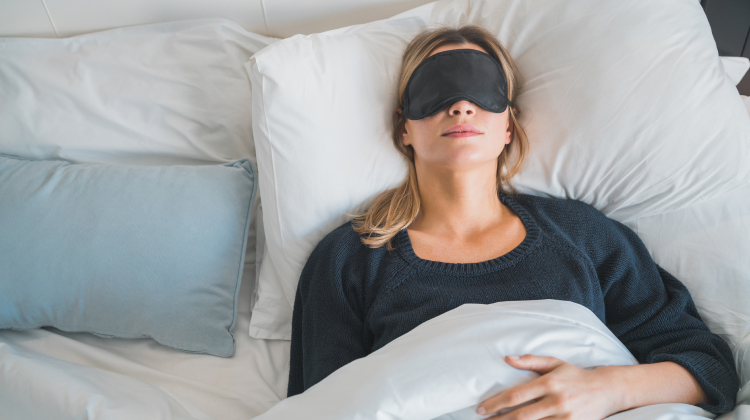How To Help Someone With Postpartum Depression? 8 Helpful Ways 2024

Postpartum depression (PPD) is a widespread mental health issue. Unfortunately, the stigma and expectations to be happy, albeit tired, keep most new moms quiet about their struggles.
Half of all new mothers experience the “baby blues” for up to two weeks, but dangerous depression is surprisingly common, appearing anytime within the first year and lasting for months or years.
One mother in seven (15%)[1] has depression, more than gestational diabetes[2], and possibly half[3] of the new moms don’t report it.
Some estimates figure that 60%[4] of women may develop it, depending on their location in the world. In the USA, studies 25 years ago[5] reported an incidence of up to 25%, but this was in a generation where it wasn’t readily admitted to. The message: PPD is serious, present, and needs awareness because the most common cause of suicide is untreated depression.
8 Ways To Help Women With Postpartum Depression
- Give Her Alone Time
- Practice Compassionate Listening
- Take Action To Help With The Small Stuff
- Make Socializing A Priority
- Let Her Rest And Sleep
- Give Her Time To Exercise
- Provide Healthy And Nutritious Food
- Encourage Therapy And Local Support Groups
8 Helpful Ways To Support A Mom With Postpartum Depression
Similar to major depressive disorder (MDD), PPD[3] causes an inability to function in day-to-day life. A mother may report intense sadness, feel little attachment to their newborn, have extreme self-doubt, anxiety, difficulty concentrating, and thoughts of suicide. Many moms hide their feelings, which can lead to a worsening of symptoms.
If you don’t know how to help your wife, family member, or friend with postpartum depression, there are many ways to offer support.
Give Her Alone Time

One of the hardest things to adapt to is losing the alone time you once had. The simplest things, like taking a shower or leaving the house on time, take great effort to accomplish.
By making sure to give mom time to herself, you’re giving her time to find a moment of peace and feel like herself again. Offer to babysit and take care of any other children she has for a few hours.
Encourage her to take alone time somewhere quiet, like a walk in the park or time at the spa. Even if you’re just dropping by, babysitting for 30 minutes so she can shower without worry can make a difference. You have no idea how dropping by so she can nap will be appreciated.
Practice Compassionate Listening

The ability to remove judgment and allow the new mother to speak freely about her experience provides a much-needed opportunity for her to express herself. It’s more than likely that she’s struggling, so listen and let her do all the talking. Open a conversation to let her feel free, and be sure to validate her feelings.
If you compare her experience with yours or other moms, it could feel meaningless to her and may even make her feel worse. Arguing against her points or saying she’s a great mom does not validate her emotions and might not be helpful. Instead, let her know you’re there for her to support her in any way you can.
Take Action To Help With The Small Stuff

When you’re overwhelmed and sleep-deprived, it’s not easy to get everything done. It can also be very difficult to feel comfortable enough to ask for help. Many women feel pressured to play the part of a happy new mom and appear as though they have everything under control. So instead of waiting to be asked for help, go ahead and offer to do some of the basics, such as
- Washing the dishes
- Bringing healthy and comforting meals
- Preparing or sending a gift card for a meal delivery service
- Asking what errands need to be done
- Clean, clean, and clean
- Manage her home temporarily so she can nap
You can also ask family or friends if there’s anything, in particular, they know that would be helpful. These little things are an especially underrated way to help a wife with postpartum depression.
Make Socializing A Priority

Losing time with friends and feeling isolated[6] is one of the main contributing factors to depression. Worse, the recent lockdown due to the COVID-19[7] pandemic has increased PPD. Maintaining and creating meaningful connections is a basic human need. Allowing her to enjoy quality time with others and feel supported is essential during this difficult moment.
Offer to babysit and let her catch up with friends. You can also sign her up for yoga or mommy and me classes, where she can feel a part of a group and try to connect with her peers.
Even accompanying her to doctor’s appointments or running errands with her can help her feel better. Consider that this will also allow her to engage in adult conversation, something that disappears when dealing with children. Stopping by to help out and hang out, or babysit while she heads out, gives her more opportunities to connect with others.
If you’re wondering how to help a friend with postpartum depression, make sure she gets time to socialize and have some fun.
Let Her Rest And Sleep

Sleep[8] is necessary for balancing hormones and allowing the body to recover. Since she likely isn’t getting enough, take errands off her hands and babysit whenever possible to let her nap.
Consider purchasing an amazon prime subscription or delivery service to save her from running to the store, or gifting a comfortable pillow or rocking chair, or anything else that can help her and the baby sleep more. Encourage sleep training classes[9] for the baby as they also have great success.
If you can sacrifice some sleep, you can also offer to be on baby duty for the night and let mom get a full night’s rest to help her recover and calm her nervous system.
Give Her Time To Exercise

Allowing new mothers to exercise[10] and move their bodies in fun ways can help to release tension. It also strengthens the mind-body connection[11]. Exercise helps to balance hormones and gives a mood boost with immediate endorphins. Even walking helps the brain to become more analytic, making it easier to manage emotions.
Provide Healthy And Nutritious Food

Nutrient-dense foods go a long way to restoring a hormonal balance. Certain foods[12], like dark chocolate, berries, nuts, and seeds provide brain-boosting nutrients that prevent–and aid in–depression. Bring healthy snacks and meals whenever you visit and consider purchasing a gift card for a healthy meal delivery service.
Supplements[13] are also a great benefit for lactating women as higher levels of folate, iron, and vitamin B12 are all needed. These nutrients greatly affect mood, sleep, depression, and anxiety. Check if she’s taking any multivitamins and if not, offer to send her a few months’ supplies.
Encourage Therapy And Local Support Groups

Certain types of talk therapy, like cognitive behavioral therapy (CBT)[14], can help women to feel supported, gain a new perspective, and learn tools to manage their new life. Therapists can offer one-on-one or group counseling as an outlet for her to speak freely, without judgment.
You can also schedule a doctor’s appointment and go with her for added support. If a doctor diagnoses postpartum depression, they may also go over other types of treatment such as hormonal therapy or medications like antidepressants. Speaking openly about the types of professional help available can allow a new mother to feel comfortable enough to give it a try.
Postpartum Depression Symptoms
Around 50%[3] of mothers with depression aren’t diagnosed professionally. They also may not realize it’s more than the baby blues. While you can expect a new mother’s postpartum mood to fluctuate and be different for a few days to weeks, any extended periods could be a sign of depression.
Watching for symptoms during pregnancy is also important since they can appear before birth. Here is a list of signs to recognize throughout pregnancy and after birth:
- Unexplained sadness, weeping
- Mood swings
- Anxiety, panic attacks, constant worrying
- Feeling incapable of caring for the baby
- Difficulty bonding with the baby
- Loss of pleasure in previously enjoyed activities
- Feelings of guilt, inadequacy, worthlessness
- Poor focus
- Irritability
- Social withdrawal
- Appetite changes
- Thoughts of self-harm or harming the baby
If you’ve noticed any of these symptoms, encourage or go with her to a doctor’s appointment. They will be able to give a formal diagnosis and discuss different types of postpartum depression treatments or, at the very least, be aware of the heightened risk for more careful observation.
In rare cases, postpartum psychosis can also occur in some women, which differs from depression by a detachment from reality. If you observe any signs of hallucinations or delusions, be sure to visit the doctor with her as soon as possible. And with newborn care, such psychosis even merits a 9-1-1 call.
Risk Factors For Developing Postpartum Depression
Some women are more likely to develop depression than others. A variety of factors can increase a new mother’s likelihood, such as
- History of anxiety or depression (in the family or personally), including symptoms during pregnancy
- Little social or partner/relationship support; single parenthood
- Low self-esteem
- Childhood trauma, history of sexual abuse
- Medical condition, birth complications, traumatic childbirth
- Infant temperament, colic
- Mixed feelings about motherhood, unplanned or unwanted pregnancy
- Previous miscarriages or stillbirths
- Severe premenstrual syndrome (PMS)
- Previous hormonal imbalances
- Recent traumatic events (i.e., death of a loved one)
- Poor nutrition (i.e., vitamin D and/or B12 deficiency)
- Low socioeconomic status/poverty
While there are quite a few risk factors, the good news is that with time and support, women are usually able to strike a balance with their feelings again.
The Bottom Line
When supported, almost 80%[15] of new mothers will recover. Luckily, women’s health is gaining more attention and losing the stigma once associated with mental illness. Speaking openly about postpartum depression is one of the best ways to make a mom feel safe enough to talk about it or consider trying treatment.
Of course, many new mothers may not realize they need help, making it all the more necessary to watch out for signs and step in to offer support. Many forms of professional treatment are also available, such as medication, hormonal therapy, and counseling.
If you’re wondering how to help with postpartum depression, one of the most important things you can do is give emotional support. Listen, without judgment or comparisons, and step in to help in any way you can.
+ 15 sources
Health Canal avoids using tertiary references. We have strict sourcing guidelines and rely on peer-reviewed studies, academic researches from medical associations and institutions. To ensure the accuracy of articles in Health Canal, you can read more about the editorial process here
- Yu, Y., Liang, H.-F., Chen, J., Li, Z.-B., Han, Y.-S., Chen, J.-X. and Li, J.-C. (2021). Postpartum Depression: Current Status and Possible Identification Using Biomarkers. Frontiers in Psychiatry, [online] 12. doi:10.3389/fpsyt.2021.620371.
- CDC (2022). Gestational Diabetes. [online] Centers for Disease Control and Prevention. Available at: https://www.cdc.gov/diabetes/basics/gestational.html
- Mughal, S., Azhar, Y. and Siddiqui, W. (2022). Postpartum Depression. [online] Nih.gov. Available at: https://www.ncbi.nlm.nih.gov/books/NBK519070/
- Klainin, P. and Arthur, D.G. (2009). Postpartum depression in Asian cultures: A literature review. International Journal of Nursing Studies, [online] 46(10), pp.1355–1373. doi:10.1016/j.ijnurstu.2009.02.012.
- Evins, G.G. and Theofrastous, J.P. (1997). Postpartum depression: A review of postpartum screening. Primary Care Update for OB/GYNS, [online] 4(6), pp.241–246. doi:10.1016/s1068-607x(97)00105-4.
- House, J.S., Landis, K.R. and Umberson, D. (1988). Social Relationships and Health. Science, [online] 241(4865), pp.540–545. doi:10.1126/science.3399889.
- Chen, Q., Li, W., Xiong, J. and Zheng, X. (2022). Prevalence and Risk Factors Associated with Postpartum Depression during the COVID-19 Pandemic: A Literature Review and Meta-Analysis. International Journal of Environmental Research and Public Health, [online] 19(4), p.2219. doi:10.3390/ijerph19042219.
- Scott, A.J., Webb, T.L., Martyn-St James, M., Rowse, G. and Weich, S. (2021). Improving sleep quality leads to better mental health: A meta-analysis of randomised controlled trials. Sleep Medicine Reviews, [online] 60, p.101556. doi:10.1016/j.smrv.2021.101556.
- Korownyk, C. and Lindblad, A.J. (2018). Infant sleep training: rest easy? Canadian family physician Medecin de famille canadien, [online] 64(1), p.41. Available at: https://www.ncbi.nlm.nih.gov/pmc/articles/PMC5962992/
- Craft, L.L. and Perna, F.M. (2004). The Benefits of Exercise for the Clinically Depressed. The Primary Care Companion to The Journal of Clinical Psychiatry, [online] 06(03), pp.104–111. doi:10.4088/pcc.v06n0301.
- Littrell, J. (2008). The Mind-Body Connection. Social Work in Health Care, [online] 46(4), pp.17–37. doi:10.1300/j010v46n04_02.
- Ljungberg, T., Bondza, E. and Lethin, C. (2020). Evidence of the Importance of Dietary Habits Regarding Depressive Symptoms and Depression. International Journal of Environmental Research and Public Health, [online] 17(5), p.1616. doi:10.3390/ijerph17051616.
- Coppen, A. and Bolander-Gouaille, C. (2005). Treatment of depression: time to consider folic acid and vitamin B12. Journal of Psychopharmacology, [online] 19(1), pp.59–65. doi:10.1177/0269881105048899.
- Gautam, M., Tripathi, A., Deshmukh, D. and Gaur, M. (2020). Cognitive Behavioral Therapy for Depression. Indian Journal of Psychiatry, [online] 62(8), p.223. doi:10.4103/psychiatry.indianjpsychiatry_772_19.
- Leight, K., Fitelson, Sarah Kim and Baker, A. (2010). Treatment of post-partum depression: a review of clinical, psychological and pharmacological options. International Journal of Women’s Health, [online] p.1. doi:10.2147/ijwh.s6938.



